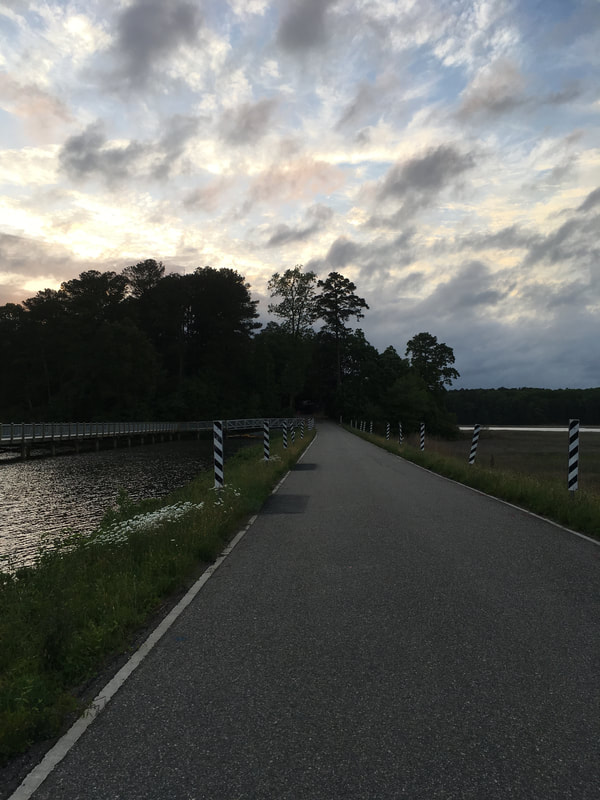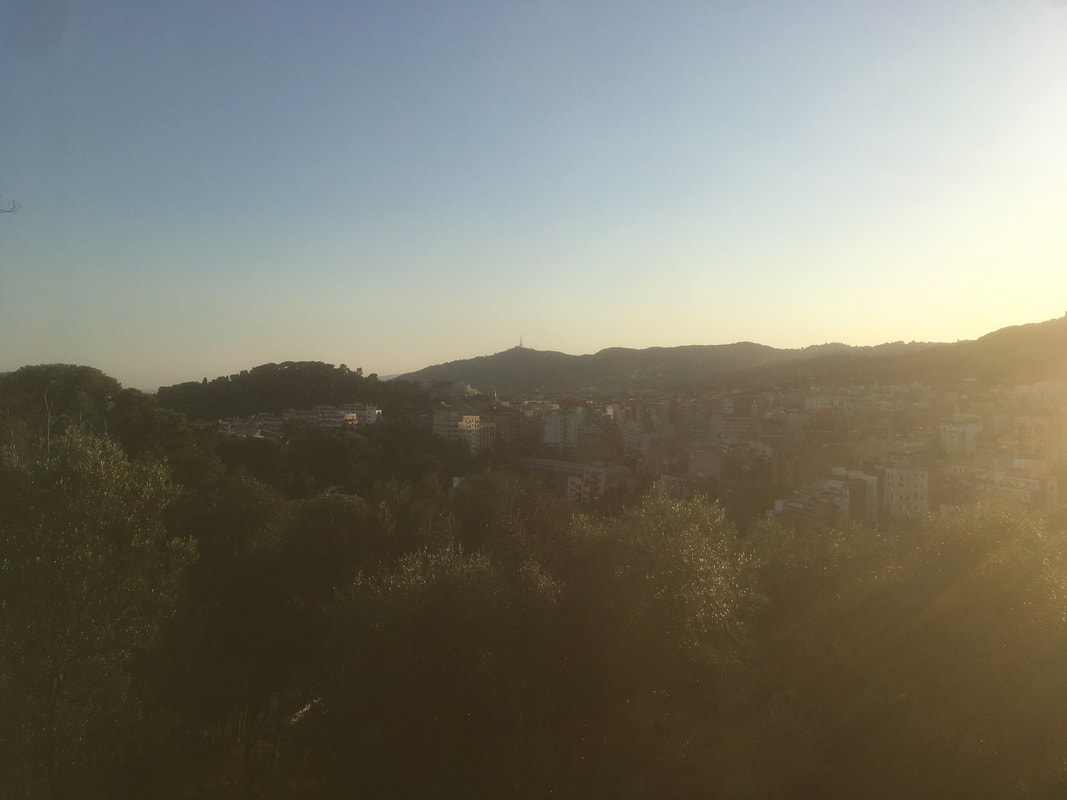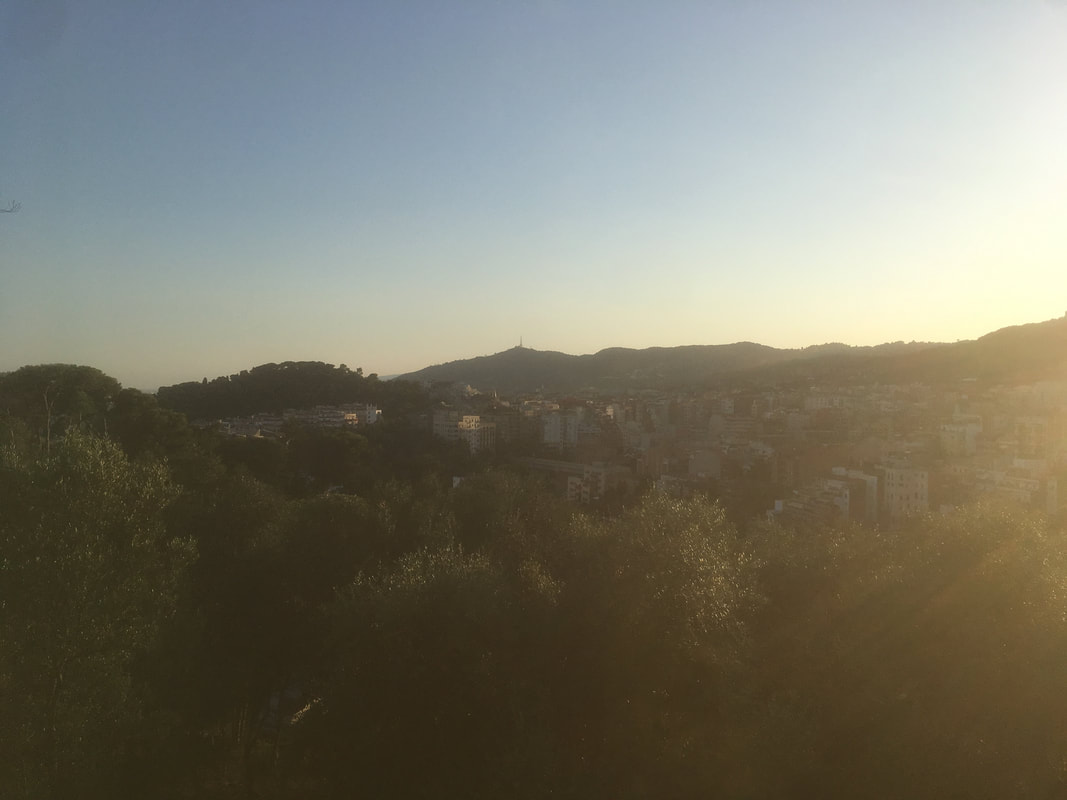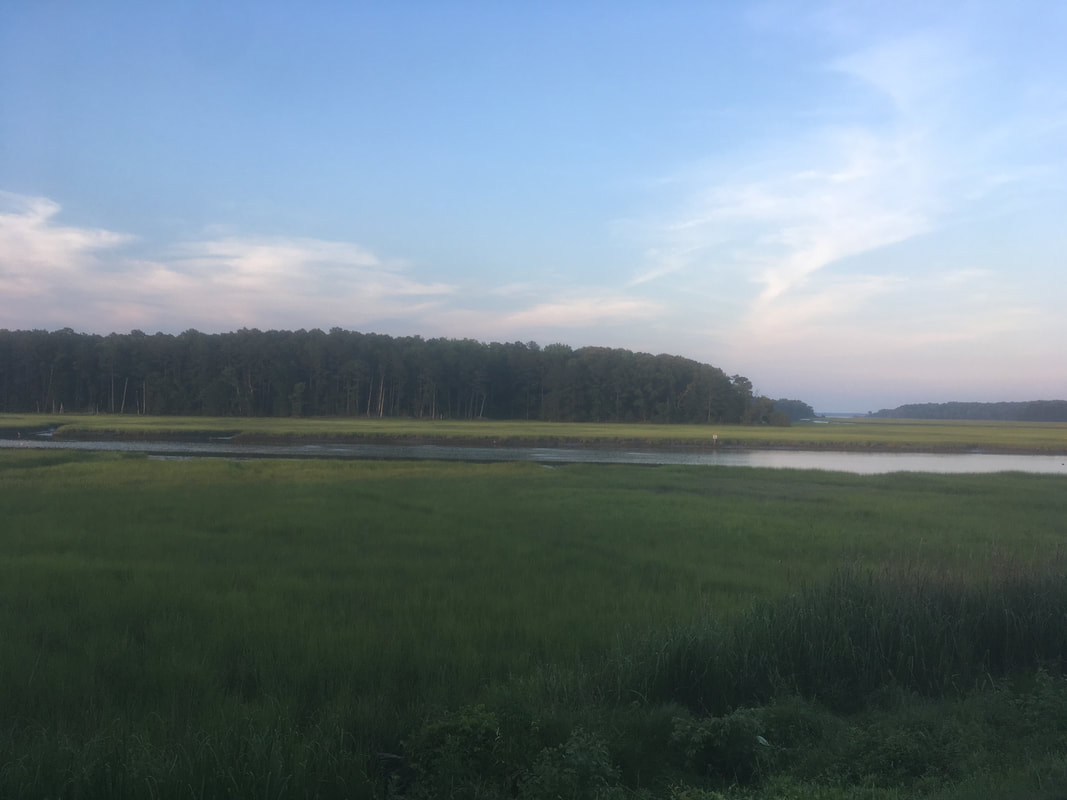|
As a child, I was taught that God gave humans the ability to choose. Free will they said. As a young adult, I have learned that even if that choice is God given, it is still mine to make. With this ability, I can choose where my future will take me or where it won’t. It is easy, however, to get seduced by free will and its allure of control. Free will, you see, is not control. It’s simply the illusion of it. If it was, why would humans feel such trepidation, anxiety, and angst when making certain decisions? If we had control of the outcome or certainty about the end result, would there be such a thing as anxiety? doubt? worry? When we mistake free will with control we are asking to be hurt, disappointed, for our expectations not to be met. But before I get too far astray in the esoteric, I want to bring this back to the real purpose of this message. To illustrate the hauntingly beautiful truth about free will and the power of choice. You will always have a choice, even when you have absolutely no control. Now when it comes to choices, it is clear that not all choices are easy. In another paradoxically beautiful truth, the most challenging choices, and even the choices we get in every way “wrong” are the ones that are the most profound and life changing. Which begs the question: How do we even come to the feeling that a choice needs to be made? Some choices that require immediate action are obvious as to how they arise, I needed to pick out a shirt before I walked into work entirely naked. We can all agree that a clear choice needed to be made at a very precise time.. But what about the not so clear, time independent choices, the ones that seem like there may not even be a choice in the first place? What prompts us to feel like we need to make a choice? Or should I say Need to make change? Is it because we feel that we cannot keep up with our current situation and the pieces are falling left in right? Is it the universe speaking to us to say it’s time to do something different? Is it because we know things can get better, even if we don’t really know what better looks like? In my experience, all of these reasons, and many more are also true. Choice, you see, implies change. Now you may argue that choosing not to chose doesn’t result in any meaningful change, or choosing to delay the choice in question also resulted in net no change, but I would argue this is far from the truth. Ever heard the expression it took a hundred times until *** What if I stopped asking my patient after attempt number 3 to try to incorporate meditation into her life? Would I have ever have gotten to the 57th time when she said, I actually tried it and wasn’t so bad, and I actually found it rather fun. Free will does not mean control. But choice is always change, even if you can’t see it and realize you actually made a choice. But coming back to the main question again What compels us to make a choice, make a choice when it’s not 8 AM and we have to put on a shirt? For that my friends, I share with you the story of my “sister” Rhett.
In her very own words. Recently, I started to feel a deepening anxiety and a feeling that “something was just not quite right”. I recognized and acknowledged that I was incredibly fortunate to pursue my education in Germany and I could not be happier with my life here. I have great friends, a sweet little studio, and am in the center of Europe. I started noticing I was asking myself a million times, “how could you want to change when everything is going well?” “when you have everything and more than you could have dreamed of?” But the feeling would not go away and I knew that I needed to change something. I needed to make a choice. A choice that ultimately lead me down an entirely unexpected path. I decided to embark on a new journey of changing universities. The German education is one of the most confusing things I have tried to tackle. There are a plethora of different forms I need- not to mention they are all in a language I do not speak fluently, and since I am an international student; my highschool diploma does not allow me to study directly at a public university. In a practical sense me, this means I will have to take a semester off to enroll in intensive German courses and then take one year of further preparatory courses. When I started to contemplate this scenario. I wasn’t so sure I was willing to take a year and a half off school. I mean, I originally wanted to finish by the time I was 22, like a “normal” college student. I wanted to be working by the time I was 23 like a “normal” young adult. I wanted to begin my masters by the time I was 26, like a “normal” young woman. Then, I looked around me and realized that normal was actually just code for Someone else’s choice. People all around me are not “normal” because they realized that normal was someones else choice to not understand their free will. I know people who are 30 and just starting their bachelors, I know people who never got their bachelors and are undoubtedly successful, I know people who finished their degrees in three years and some who finished in six. Who wants to be normal? Who wants to be someone else’s choice? Life moves fast, almost too fast. But, it can also move at your own pace. With choice, we are allowed to slow down life or speed it up to what we can handle and what we want. For me, I realized that my degree would be on pause and I would not be on a “normal” track, but it will be going the way I want. I have the world to look to for advice and for comfort; everyone does their own way and it all seems to work out. I read a quote once by John Lennon when I was about 12 years old which has stuck with me till this day: “Everything will be okay in the end and if it’s not okay then it’s not the end.” Free will is not control. Choice is change. Normal is somone else’s choice. I will take my free will, to choose and change, knowing that normal can never be the end.
0 Comments
It is hard to remain peaceful or hopeful when your mind starts to wander, recalling all of the times you have been disappointed and let down. Let down by life, by the people in it, or even by yourself. We tend to turn to anger when things do not go our way and we will even lash out at the people we actually care about the most when the anger starts to emerge. When it comes to anger, we, as a general society, seem to feel the need to “release” it, and even promote ways to do so. But why can’t anger just be felt, contained for a positive purpose and then let go? Do we need to yell, kick, scream, punch or blame someone for what has happened, for what “made” us feel angry or for the feeling of anger itself? Come to think of it, while we are here, why do we even “let” people “make us angry?” It’s a common expression, so and so, made me so …, but have you ever stopped to think how ridiculous and disempowering this is? Perhaps, we as a society, don’t have an anger or frustration problem, but a problem with impermanence, human connection and the capacity to self regulate. Perhaps what we need is not anger management or punching bags, but “self management” and the willingness to feel upset without the thought of a punch or kick. Even if someone's actions, or your own, have caused suffering, blame will only continue the cycle of pain and not bring any relief. We can choose to let go of the blame and turn instead to something much more meaningful, to the power of forgiveness. To accept is to forgive. We should first accept that something bad or wrong has happened to us and realize that we cannot change the current situation or outcome. We can change, however, how we move forward from it and how we react. A negative retaliation will not help solve the problem or ease suffering. It is difficult to accept what has happened and choose to forgive especially when it comes to yourself. We tend to be harder on ourselves than anyone else, berating and taking ourselves down, when what we actually need is to realize that we are first and foremost: human. We need to be gentle with ourselves because we are doing the best that we can. The same goes for others. If a loved one, or close friend, or even a stranger causes harm or makes a mistake we cannot turn to unkindness. Unkindness will not only burn the other person, it will burn you as well. We must remind ourselves that the people we encounter, loved ones or strangers, are simply people at the very basic level. We are all doing the best that we can.
The pain we are feeling is the hardest part to overcome. We become narrow focused on the “I can’t believe this has happened” or the “How could they have done this to me?” which is where the anger first comes to life. We then think “I would have never done this to them” or “I am so stupid for letting this happen” when in reality, this is not the case. Instead of remaining in this anger circle, we can refocus our energy on thinking about what this person might have been thinking or doing that led them to this action or what similar situation we previously might have been in that can bring clearer wisdom to the present moment. By doing this, we may be able to piece together how things happened the way they did and even how we can start to accept and forgive. This is not to say, however, that we shouldn’t have boundaries, because we can forgive someone and ourselves and still let them know that this behaviour was hurtful and unacceptable. It’s why I don’t believe in compromises. Compromises are passive. Compromises construct no boundaries. What we need instead are resolutions. Resolutions to not make a similar mistake again, to engage in a more positive behaviour, to be more willing to accept and forgive, to become more gentle, but in the same moment, more resilient. You see, we don’t need a country full of violent, angry compromisers needing to escape acceptance or the feeling of anger in the first place. We need a country of gentle, but angry resolvers who are willing to acknowledge and accept hurt and anger, yet transform it into something transcending the circumstances in which it was created. Anger and hurt is not an opportunity to maim or blame, it’s an opportunity to accept and forgive, knowing that yes, indeed, through this we shall live. It seems to be a common theme that we as human beings do not particularly fancy change. Many fear the outcome of their future reality or even the outcome of their future selves while others fear the energy commitment involved in undergoing change. I agree that change can be intimidating and scary, but this view only represents one angle, one perception of this dynamic situation. All things, even photos or people, have good angles and bad angles. If we take the time to change our perspective over a certain situation, we will inevitably alter the way we perceive the changes whether we want them or not! One of the hardest parts of making a change is putting forth the effort and finding the motivation to start. We often find ourselves trapped in a comfort zone- or what I actually see as an “uncomfort zone”- a restrictive space which seems to contain all we know or all we think we can control. We allow ourselves to stay perpetually in the same daily routine, same environment, or same relationship, even though we know it is not in alignment with our inner nature . What may hold us back, of course, is the unknown. Will I make it? Is it worth it? Am I going to be okay? The answer to all of those questions is yes. You will make it, it is worth it, and you will be more than okay. The beautiful thing about change is that you can manipulate it however you want. If one try doesn’t fit right then you have the ability to try again. We do not have to feel stuck or trapped. We just need one feeling of bravery, one piece of courage. Before we decide to take the plunge, however, it is important to realize why we are trying to implement these changes in the first place. There are a myriad of reasons, ranging from the simple desire of new scenery or a deep, necessity for a newer and healthier environment. Being able to identify why we want this change or why we need to change ourselves can make the process less overwhelming and ultimately more successful and meaningful. By doing this, we can motivate and energize our efforts behind why we really want to move on. There is no one right way to begin making changes, but it is almost always a bad idea to start worrying about the when and the how without first starting with the why. And when it comes to change, there really isn’t such a thing as “an end goal.” The human experience is by definition, a state of dynamic fluidity. We are living examples of the most incredible acts of iterative evolution. Whether you believe in an act of divine creation, evolution or some combination of the two, human beings are miraculous change agents, experiencing or bringing about more change than any other living creature we currently know in existence. Fearing, resisting or denying change, is denying the most intrinsically beautiful human capacity, a capacity I believe we need to recognize now more than ever,
Change, you see, is not permanent, yet we must recognize that periods of profound “becoming” are often followed by periods of deliberate “being”. We must become aware of these seasons, of when we have made the changes we desired, of when we need to rest, reflect and grow from this new place of being. If we continue to move around in perpetual states of “becoming”, we will only become detached, lost or cold. As you progress through stages of changes, take time to reflect and write down your goals- reminding yourself that changes is not about following plans, but following the heart that deeply believes in the evolution of you. There will be days when you slip up, forget and start to fear the change coming; however, this is not a sign of failure, but a sign of growth, a sign that your chrysalis is warming to the rays of the sun. Despite all of our “mental trepidation” we may not actually be afraid of change itself. We may not even be afraid of what it brings, or if it is worth it, or if we are capable of it. We may just be afraid to start or we may just be afraid that there is no end. We simply must learn how to begin, to identify why we want change, to stay grounded in our goals, and to finally take the plunge into the unknown. A little over 5 years ago, as I sought to restart my life, I stumbled across ancestral health and the so called paleo diet. It was a rabbit hole that not only changed my life, but gave me life. In those 5 years I have read more blogs, listened to more podcasts, watched more videos and participated in more trainings that I can honestly count. If I were Popeye, this knowledge and exploration would be my spinach. I could have never imagined as a young medical student just trying himself to get well and find his purpose that I would one day be using the power of creation and faith, evolution and science to help my patients and myself remain well. As of today, I have been a medical doctor for just over a year. A resident physician with so much to learn. While I have MD after my name, you will not find MPH, PhD or any other acronym soup. On paper I am not a researcher. I have no special public health training and have not spent years in a research lab. I certainly have no money, no big grants behind my name and my mentors do not have the letters Dr. in front of their names. As a fourth year medical student I took the challenging task to design my own mindfulness program and research study, and with the help of a close friend and mentor pulled it off. I didn’t do it for recognition or because I had to. I did it because students needed help, needed self care, needed reflection, and I wished to show them and others how valuable it could be. While in the end the study was small, underpowered without “statistical significance” 8 people’s lives were positively changed and I now knew that I could do this. Fast forward a year and a half and I find myself leaping from the cliffs again. Having partnered with my close friends, some of the most authentic and beautiful people I know, Mickey Trescott and Angie Alt of Autoimmune Wellness, I am seeking to further explore the power of nutrition, health coaching and that indescribable drive to heal. As a team, we have come together to design a pilot research study, the first medical study of the nutrient dense elimination diet known as the autoimmune paleo diet for autoimmune thyroid disease or Hashimotos. In 2016 Angie and Mickey partnered with a clinician from Scripps, a major medical and research institution to study the effect of AIP on IBD. Needless to say what they showed was nothing short of remarkable. 12 of the 15 participants went its clinical remission after just 6 weeks of the nutritional intervention. Yes indeed, food is power.
I am speaking to you today to ask for your help. As I mentioned before, I have no special training in research, I have no grant funding, I just have a couple friends as passionate as I to somehow conduct a research study to show just how powerful food and human connection can be. In order to pull this study off, to cover all the laboratory and research expenses we need close to $10,000. This grassroots research project is a testament to the power of human innovation and answering a need to do something much greater than yourself. I humbly and sincerely ask that you consider donating to help make this research study a reality. I have been accused before of having an agenda, for turning everything into some form of “natural medicine.” So to those people I say sure, I have an agenda. To relieve suffering and help those hurting find a path to sustainable health in all the ways that God and the mystery are showing me how. Maybe it’s time you got a agenda too. Curled up in bed, lights off, the cold weather begging to come in through my window, and a slow pain- coursing from head to toe. This was my expression of loneliness. Loneliness, is shown and felt differently for each person. It can be shown through anger, timidness, quietness, or over exploitation within one's personal life. My loneliness was expressed through a quiet and numbing pain. Not only this, loneliness changed who I was and changed how I acted. I felt as if it was necessary to constantly go out and meet new people and avoid all the pain I was feeling. In certain ways this did help. It was nice to meet new people and spend my nights away from a dark room; however, from this place of loneliness, I was starting to meet the wrong people, spending my nights in ways that were actually detrimental to my well being and healing. I wanted that feeling of connection so badly that I started to give away parts of myself that should have stayed close to my heart and found those pieces of me falling into the hands of others who were not going to do me well. In those moments though, I felt whole and I felt wanted. I had felt the “connection” I was looking for, even though it had been temporary, it felt warm and authentic. If I had looked past the veneer I would have found the truth that the warmth and authenticity I had felt was simply a mirage- a placebo effect of what was missing. After a months of avoiding my pain, and losing parts of who I was; I decided I needed to find a way to heal. I traveled back home to my loved ones for two weeks on summer vacation. It was ironic coming home because I had originally left because of loneliness and a desire for change. When I arrived, I was immediately embraced by my mother and in that moment I felt better. I felt less alone. The days continued and I was with people who unconditionally loved me, supported me, and cared about me. I also began to start doing the things I loved again; such as reading, writing, spending time outside, and just spending time by myself, healing. With this time, I began to ponder and realize that loneliness is not conquered by meeting new people or forcing yourself to connect, it is overcome by connecting with yourself and coming back to those who truly care, love, and support you. Conquering loneliness is an interesting process and revelation. What I believe is the most critical step in this revelatory process is realizing what or who is causing you to feel the ache of loneliness. After identifying the cause, remind yourself that you do not deserve or need to feel this way. Remind yourself each and every day; and reward yourself by doing something you love- whatever it may be. On hard days, try and head back to your roots. Head to your loved ones; family, friends, or even a journal. Focus on platonic, healthy relationships that are equal and supportive. Head back to you. Make time in the day to do one thing that brings you joy. Finding simple things that you enjoy doing alone can be the most beneficial way to get rid of unwanted thoughts and feelings. Being able to spend time with yourself, doing what you enjoy, brings satisfaction and strength. Head back to you.
There will be many days where you will be curled up and the cold will be begging to come in through the window; however, those days, like all days, do pass. The sun will always rise. The weather will change and you will no longer be curled up. When you pass through hard times remember who you are, how far you have already come, and how far you will go. Go back to the people who love you unconditionally and are readily available to you. Above all, the loneliness will not win and you will not give up. The innate human desire to be free from loneliness, disillusionment, and disconnection won’t let you. |
The MessageDedicated to the flourishing of your being Archives
November 2018
Categories |





 RSS Feed
RSS Feed